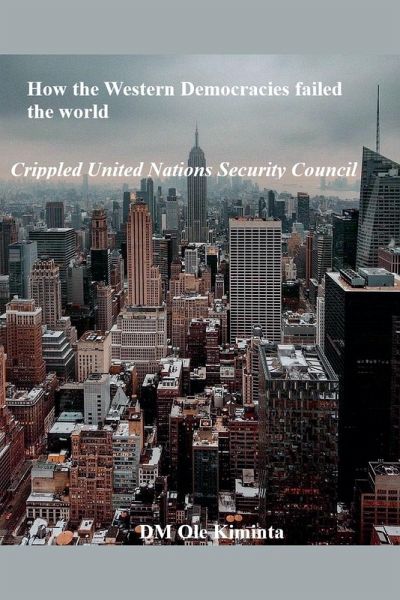
How the Western Democracies failed the world

PAYBACK Punkte
8 °P sammeln!
Historical Context of Western Democracies My early years were flooded with profound ideas of how good and safe the Western Democracies were and how evil the Soviet Union was with everything that it stood for. Abruptly and unexpectedly, the Soviet Union exited the arena and hence letting go the tug of war. Now look at where we are and what has happened to the world security and the economies of the global south if you can think of it as such. An account of the functions of United nations security council is included at the final chapter of this book which looks at the current worth of such an o...
Historical Context of Western Democracies My early years were flooded with profound ideas of how good and safe the Western Democracies were and how evil the Soviet Union was with everything that it stood for. Abruptly and unexpectedly, the Soviet Union exited the arena and hence letting go the tug of war. Now look at where we are and what has happened to the world security and the economies of the global south if you can think of it as such. An account of the functions of United nations security council is included at the final chapter of this book which looks at the current worth of such an organisation during our troubled times and what it has so far accomplished or its "inactivity" up to this time. The historical context of Western democracies is rooted in a complex interplay of philosophical evolution, economic interests, and societal transformations. Emerging from the Enlightenment, the principles of liberty, equality, and fraternity laid the groundwork for modern democratic systems. However, the reality of these democracies often diverged sharply from their ideals, particularly as Western nations expanded their reach through colonialism. The legacy of these imperial ventures not only shaped the political landscape within Western countries but also imposed a framework of governance and economic exploitation on colonised nations, creating enduring inequalities that persist today. The rise of neoliberalism in the late 20th century marked a significant turning point in Western democracies. Advocating for free markets, deregulation, and reduced government intervention, neoliberal policies drastically reshaped economic landscapes. While these policies were touted as pathways to prosperity, they frequently exacerbated global inequality, concentrating wealth within a small elite while leaving vast populations in poverty. This economic model, often exported to developing nations under the guise of structural adjustment programs, led to social unrest and deepened the chasm between the Global North and South, raising critical questions about the moral foundations of Western democratic ideals.














